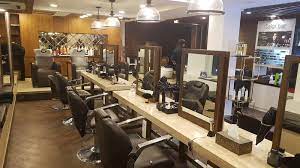Hair salons have long been more than just places to get a haircut; they hairdressers are cultural hubs where style, beauty, and community converge. The evolution of hair salons mirrors the changing trends, technologies, and social dynamics of society. From humble beginnings to luxurious modern-day sanctuaries, let’s explore the fascinating journey of the hair salon.
Early Beginnings: Functional Spaces
The concept of hair care and grooming dates back thousands of years, with evidence of early forms of barbershops and hair care rituals found in ancient civilizations like Egypt, Greece, and Rome. These early establishments primarily focused on functional hair care, offering services like hair cutting, shaving, and basic grooming.
Renaissance and Baroque Eras: Rise of the Barber-Surgeon
During the Renaissance and Baroque periods, barbershops evolved into popular meeting places where men would gather not only for grooming but also for socializing and discussions. Barbers often doubled as surgeons, performing minor medical procedures alongside haircuts and shaves.
19th Century: The Salon Culture Emerges
The 19th century saw the rise of the salon culture, particularly in Europe, where women would gather in salons for intellectual discussions, art, and cultural exchanges. Hair salons began catering to women’s grooming needs, offering services like hairstyling, coloring, and treatments.
20th Century: The Golden Age of Beauty Salons
The 20th century marked a significant shift in the salon industry, with the introduction of modern hairdressing techniques, electrical appliances, and chemical treatments. Beauty salons became more popular and accessible, offering a wide range of services to cater to changing beauty standards.
Modern Day: The Salon Experience Redefined
Today, hair salons have evolved into luxurious sanctuaries offering a full range of services, including hair styling, coloring, extensions, treatments, and spa services. The focus has shifted from just hair care to providing a holistic experience that includes relaxation, rejuvenation, and personalized styling advice.
Technology and Innovation: Transforming the Salon Industry
Advancements in technology have revolutionized the salon industry, with the introduction of digital tools for appointment booking, virtual consultations, and personalized hair care recommendations. Social media has also played a significant role in shaping salon trends, with platforms like Instagram influencing hairstyle trends and salon aesthetics.
The Future of Hair Salons: Sustainability and Wellness
Looking ahead, the future of hair salons is likely to be shaped by sustainability and wellness trends. Salons are increasingly adopting eco-friendly practices and products, as well as incorporating wellness services like scalp massages and aromatherapy into their offerings.
In conclusion, the evolution of hair salons reflects broader societal trends and cultural shifts. From functional spaces to style sanctuaries, hair salons have evolved into more than just places to get a haircut—they are symbols of beauty, style, and community.



